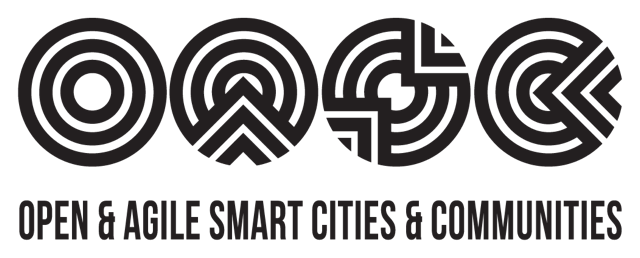Towards Urban Capacity Building for Citizen-Centric Innovation
By Christoph Raetzsch, Affiliate Researcher, Centre for Digital Transition of Cities and Communities (DITCOM), Aarhus University, Denmark.
Cities may be the most complex systems to manage because everyone has an opinion on how to do it best.
And many options are always on the table. Instead of dismissing the ones and favouring the others, experimentation promises to provide a structured method of innovation where a large part of stakeholders can get their say, reveal their perception of a problem and commonly work towards a solution. The motto is to experiment locally, involve as many and see where the journey can link you up to other cities and their best practices. But this depends on a shared vision and strong collaboration to build trust in the process from different sides.
The motto is to experiment locally, involve as many and see where the journey can link you up to other cities and their best practices. But this depends on a shared vision and strong collaboration to build trust in the process from different sides.
How experimentation can work at scale and contribute to citizen-centric innovation is detailed in a paper by Martin Brynskov, Adriënne Heijnen, Mara Balestrini and Christoph Raetzsch on “Experimentation at scale: challenges for making urban informatics work”, which appeared in a special issue on “Urban Informatics: Decoding Urban Complexities Through Data-Sciences” of the journal Smart and Sustainable Built Environment, edited by Nimish Biloria.
The paper situates experimentation as a method within smart city discourses and presents findings from two projects: Dampbusters using the Bristol approach and OrganiCity in Aarhus, London and Santander, building an Experimentation-as-a-Service platform across cities through co-creation and a set of shared engagement principles.
The paper concludes that experimentation as an approach to innovation is most sustainable, when it has lateral effects: Besides the gains and insights of individual projects, experimentation-as-a-service needs to contribute to an institutional framework within city governance to support new forms of civic and technological capacity building. The article offers a range of implications for enabling experimentation at scale on the level of engagement principles with stakeholders, data structures and interfaces and governance principles.
Engagement Principles
- ensure that citizens and other stakeholders have a right to co-design a city’s digital resources through a code of ethics and engagement principles
- develop rewards and adequate incentives for participation (IPR’s and licenses)
- share success stories widely to build community spirit and trust, enable digital literacy programs to build networked resources and capacities in different realms of the city
Data Structures and Interfaces
- work towards establishing a data commons where data is accessible and usable
- use widely established standards and minimal interoperability mechanisms (MIMs)
- adopt a privacy-by-design approach to foster trust
Governance Principles
- use a clear communication strategy that reaches out and informs in accessible language; differentiate communication for different core stakeholder groups
- team up and support organisations or institutions active in your city to create network effects for citizen engagement
- create dedicated teams or administrative units to foster experimentation for cross-domain challenges
- find effective means of horizontal communication and avoid departmental data silos or isolated digitisation projects
- opt for synergies between applications, departments and experiments
In summary, scaling experimentation
“depends on developing systemic capabilities to experiment within cities and in collaborations between cities to establish best practices, standards and ecosystems between actors and institutions.” (p.159)
Capacity building through experimentation requires active civic outreach, technological interoperability and long-term governance frameworks that prioritize sustainable and citizen-centric innovation.
One way to start is by using the OrganiCity playbook to start sketching your journey.
***
Please cite as: Martin Brynskov, Adriënne Heijnen, Mara Balestrini, Christoph Raetzsch, (2018) “Experimentation at scale: challenges for making urban informatics work”, Smart and Sustainable Built Environment, Vol. 7 Issue: 1, pp.150-163, https://doi.org/10.1108/SASBE-10-2017-0054
A shorter version of this post originally appeared on http://raetzsch.berlin.
See also the previous article by Christoph Raetzsch and Martin Brynskov on “Challenging the Boundaries of Journalism through Communicative Objects: Berlin as a Bike-friendly City and #Radentscheid” about the enlarged communication space that sensors, data and infrastructures create for public deliberation.
Contact:
Dr. Christoph Raetzsch (christoph@raetzsch.berlin) / Twitter: @craetzsch

